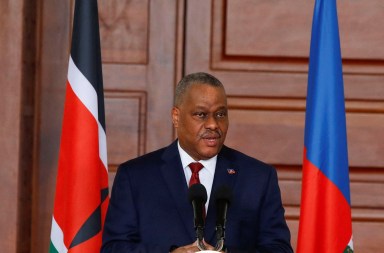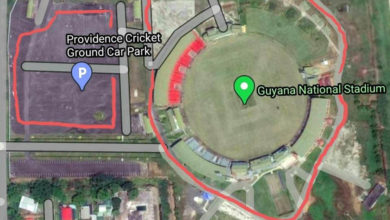Trouble brews in Haiti’s council

On Tuesday, Caribbean Community governments scolded the top brass of Haiti’s interim transition council for putting simmering disagreements in the public domain when the security situation is deteriorating, warning that doing so will bring further despair to long-suffering Haitians.
In an unusual show of disappointment with the interim government it had helped to establish in March, the 15-nation bloc noted in a statement that “this perilous moment in time calls for cohesiveness and joint focus in addressing the many challenges that obstruct the search for stability and progress towards the objectives of the transition.”
The bloc’s concern comes amid a searing row between Council President Leslie Voltaire and Prime Minister Garry Conille.
Recently installed Voltaire has proposed a major shake-up of the nine-person interim council and cabinet ministers, including the reshuffling or removal of up to seven members, including Minister of Foreign Affairs Dominique Dupuy, originally the lone woman on the council.
Conille has stoutly refused Voltaire’s suggestion, noting that it would not only be irresponsible but would also trigger instability in the eyes of the public, a point CARICOM noted in its statement. Voltaire also wants to ditch ministers responsible for justice, planning, health, and the interior. It is not clear who will replace them if his proposals gain traction.
“These differences between the leaders of the executive also undermine confidence among Haiti’s partners and the wider international community, impeding the provision of the critical assistance that Haiti urgently requires to address and overcome the complex crisis in which it is presently mired. CARICOM is deeply concerned by the ongoing differences being played out in public between the president of the Transitional Presidential Council (TPC) and Haiti’s prime minister. This growing lack of cohesion imperils the transitional process based on the spirit and the principles of compromise, consensus, and inclusiveness set out in the Political Agreement of 11 March 2024 in Jamaica and the Political Accord of 3 April 2024 drawn up by the Haitian stakeholders.”
The bloc said its three-man eminent person group appointed by governments to work with Haitian stakeholders in bringing stability in Haiti is closely monitoring “these disquieting developments” and has engaged both the president and prime minister in recent days “to better understand the roots of the disagreement to guide its efforts at facilitation and a return to comity between the leaders of the executive. The efforts of the EPG will continue for as long as required. Further, CARICOM calls on all the members of the TPC and the interim government to remain focused on working for the Haitian people and the important task at hand, which is to lay the ground for free and fair elections by February 2026.”





